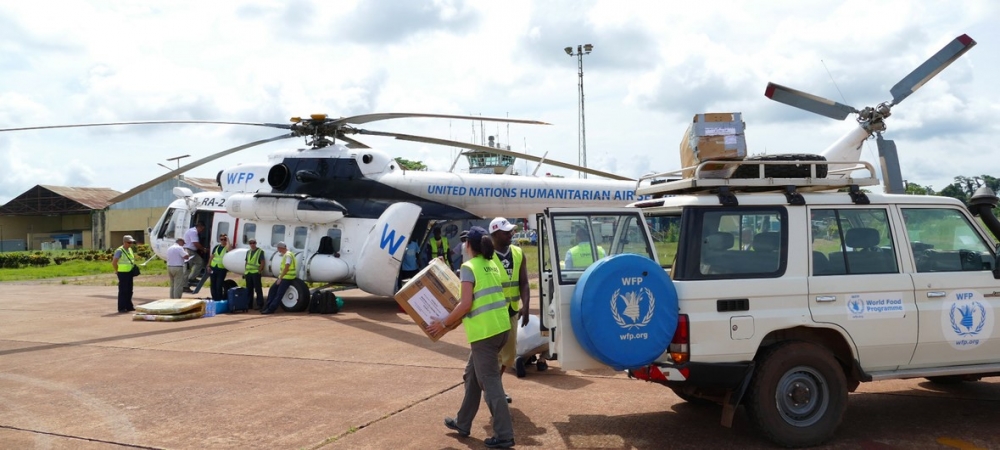Ebola outbreak spreads to Oicha, complicating relief efforts

Emergency food aid is being delivered to North Kivu province in the Democratic Republic of Congo after an Ebola outbreak was declared on the 1st August 2018. This marks the tenth outbreak of Ebola in the DRC over the last 40 years.
The virus spread at an alarming rate, with 118 confirmed or probable cases and 77 deaths. The outbreak recently spread into Oicha health zone, an area surrounded by multiple armed groups, making containing the virus and identifying cases an even bigger challenge, according to a report from the International Rescue Committee.
The outbreak comes amid an existing crisis, where hundreds of thousands of people in North Kivu province have been displaced by fighting in surrounding regions. There are more than 50 armed groups operating in North Kivu which has complicated relief efforts in the area.
These armed groups make it difficult to not only track the spread of the disease, but they pose an additional challenge to relief efforts by making these areas inaccessible to aid groups trying to provide food, medicine, and support.
In response to this relationship between the spread of Ebola and the threat of the armed groups, Michelle Gayer, Senior Director of Emergency Health at the International Rescue Committee, explained: “If someone contracts Ebola in one of these areas, there is almost no way of knowing and, therefore, no way of cutting the chain of transmission.”
The World Food Programme (WFP) and its partner Caritas have begun to airlift food from WFP’s warehouse in Dubai into Goma, the capital of North Kivu province. The organisations are also providing food to 4,000 inhabitants of surrounding villages, especially those who have been in contact with people affected by the virus. These people and their families are receiving a month’s supply of cereal, beans, oil and salt in order to limit population movements and prevent the virus from continuing to spread.
A month after the outbreak was announced, over 4,000 doses of vaccine have been given. Health experts are hopeful that the number of confirmed cases will begin to decline, but it is too early to declare that the outbreak is under control.
Photo Credit: WFP/Olivier Nkakudulu
The AIDF Africa Summit will return to Nairobi on February 2019.
If you’d like to stay informed on the latest updates in aid and development, please sign up for the AIDF newsletter.















